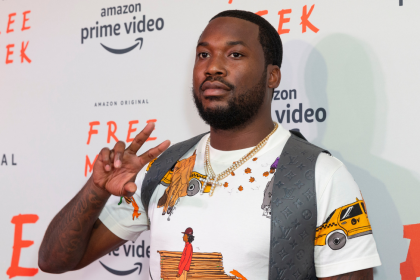photo credit by shutterstock.com
Record-breaking achievement
Hip-hop artist Kendrick Lamar has shattered records with his chart-topping track, Not Like Us, which has claimed the title of Apple Music’s most-streamed song of 2024. This milestone not only solidifies Lamar’s dominance in the music industry but also adds another jewel to his already illustrious career. Known for pushing boundaries and delivering thought-provoking lyrics, Lamar continues to prove his relevance in an ever-changing musical landscape.
From topping the Billboard Hot 100 to earning recognition as the year’s best-selling track in the United States, Not Like Us marks a defining moment that encapsulates his ability to connect deeply with audiences worldwide. The achievement is a testament to his artistry and relentless pursuit of excellence.
Streaming dominance
Apple Music’s annual streaming report for 2024 unveiled the monumental impact of Lamar’s track. Not Like Us led the “Top Songs of 2024: Global” playlist, a highly anticipated list that highlights the year’s most influential music. The report, released on November 3, crowned Lamar’s song as the global favorite, overshadowing fierce competition from other notable hits.
Among those vying for the top spot were Shaboozey’s A Bar Song (Tipsy), which landed in the fourth position, and Post Malone’s collaboration with Morgan Wallen, I Had Some Help, which claimed the sixth spot. The overwhelming success of Not Like Us not only underscores Lamar’s dominance but also sets a high bar for his contemporaries.
Lamar’s ability to rise above the crowded digital music space speaks volumes about his unique appeal. His lyrics, combined with masterful production, create an immersive experience that continues to resonate with fans across generations.
Multiple chart presence
Lamar’s influence in 2024 was not limited to Not Like Us. His feature on Future and Metro Boomin’s Like That secured the eighth spot in global rankings, further cementing his place as a versatile and sought-after artist.
This dual appearance in Apple Music’s top ten showcases Lamar’s ability to excel both as a solo artist and as a collaborator. It also highlights his willingness to explore diverse musical styles, which keeps his sound fresh and engaging. Such achievements reflect his adaptability and his enduring significance in the evolving world of modern hip-hop.
Industry controversy
The road to success for Not Like Us was not without its twists and turns. Adding a layer of intrigue to the song’s meteoric rise is an ongoing legal battle involving Drake and Universal Music Group (UMG). Drake has accused UMG of artificially inflating streaming numbers through bots and questionable promotional tactics, a move that has drawn widespread attention.
Ironically, these allegations appear to have had an unintended consequence. Following Drake’s public accusations, Not Like Us experienced a dramatic surge in popularity, with a reported 440% increase in sales and a 20% boost in streaming numbers. This phenomenon illustrates the unpredictable nature of the modern music industry, where controversy can serve as a catalyst for success.
Expert perspectives
Music industry experts have weighed in on the controversy and its impact on Lamar’s success. Audiomack co-founder Brian “Z” Zisook suggested that Drake’s attempts to undermine the track’s achievements may have inadvertently amplified its visibility. By bringing attention to the song, Drake may have sparked curiosity among listeners, driving even more streams and sales.
Entertainment lawyer Kevin Casini echoed similar sentiments, highlighting the paradoxical nature of public disputes in today’s digital-first music industry. According to Casini, controversies often create a ripple effect, turning songs into cultural phenomena and boosting their reach beyond traditional marketing efforts.
This unexpected turn of events underscores the complex interplay between artistry, public perception, and media attention in the age of streaming.
Cultural impact
The success of Not Like Us reflects the evolving dynamics of the music industry, where the boundaries between art, controversy, and consumption are increasingly blurred. Lamar’s track has not only dominated the charts but also sparked conversations about the role of authenticity and promotion in determining a song’s popularity.
The track’s journey from its initial release to its current status as Apple Music’s most-streamed song is a testament to the power of digital platforms in shaping the modern music narrative. It also highlights how external factors, such as legal disputes and public discourse, can influence a song’s trajectory in unexpected ways.
For fans, Not Like Us represents more than just a chart-topping hit. It symbolizes the cultural significance of music in bringing people together and inspiring dialogue, even amidst controversy.
Future implications
As Lamar continues to redefine success, the unprecedented rise of Not Like Us sets new benchmarks for the music industry. The track’s achievements, bolstered by both its organic appeal and the ripple effects of industry drama, signal a shift in how musical success is measured and celebrated.
For artists, the journey of Not Like Us offers valuable lessons about navigating the complexities of a digital-first industry. It demonstrates that while talent and creativity remain paramount, external factors such as media attention and audience engagement can play a pivotal role in shaping an artist’s legacy.
For Lamar, the future looks brighter than ever. With Not Like Us, he has once again proven his ability to captivate audiences, break records, and stay ahead of the curve. As fans and critics alike celebrate this milestone, the track stands as a reminder of Kendrick Lamar’s enduring influence and his ability to push the boundaries of what’s possible in music.
















